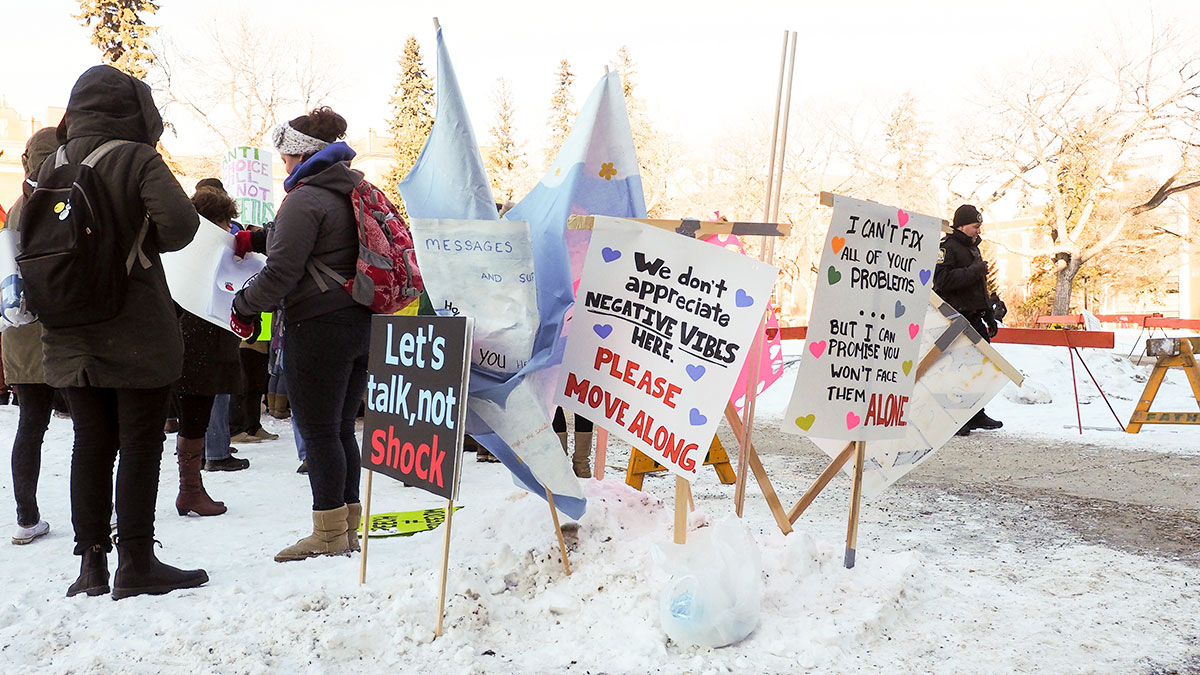University administrators role play hypothetical men’s rights controversy on campus
 Ab Sch
Ab SchWith free speech on campuses becoming a national issue, members from various governing bodies at the University of Alberta spent a day discussing a hypothetical test to the university’s commitment to academic freedom.
At a joint meeting of the university’s board of governors, general faculties council and senate on January 26, 102 members from all three bodies discussed how they might handle freedom of speech controversies on campus. To do so, a hypothetical scenario was presented in which a men’s rights group was distributing pamphlets in the Students’ Union Building discouraging women from entering scientific and engineering fields, and participants were asked to see how’d they react to it.
The scenario unfolded throughout the meeting, and participants were given updates that further complicated the situation The initial update involved protests and counter protests emerging in response to the men’s rights group, followed by instances of targeted harassment and increasing media attention. Participants were given a final twist when they were told the group was led and financed by a group of professors at the university.
“What I think was cool was that we played this scenario out like every layer,” said Students’ Union vice-president (external) Reed Larsen. “Like this went from ‘Oh this is a simple issue we could resolve in five minutes,’ all the way to ‘This is probably a worldwide news story and conspiracy at this point.’ It’s really cool to see everyone’s reaction all the way through.”
University president David Turpin said the purpose of the meeting wasn’t to come to a definitive statement on difficult discussions on campus, nor to devise policy, but to explore the issue and see how people could come to different conclusions with the same information.
The U of A isn’t a stranger when it comes to controversy. In October, a number of posters saying “it’s ok to be white” were found all across campus, including on the doors of Pembina Hall. And in September 2016, anti-immigration posters that said “Fu*k your turban” appeared near the Rutherford North library. Both incidents were met with a response from the university condemning the acts.
And in the case of the anti-immigration posters, a video response featuring Turpin with the Indian Students’ Association President Radvinder Bhardwaj had been published online, followed by a turban tying event in the Students’ Union Building.
“The turban event was a great example,” Turpin said. “The example there is how important it is to engage students and the administration right at the beginning. Because we’re all working for the same thing, and the sooner those relationships are formed in response to any crisis, the better it is for the institution and the students as we go forward.”
Turpin added that the conflict between freedom of expression and equal rights is bound to surface again at the U of A, and that universities shouldn’t feel embarrassed when it does occur.
“Those values rub up against each other, and I think it’s so important that we not be embarrassed by that,” he said. “Those discussions should be happening at universities, that’s what we’re for.”




